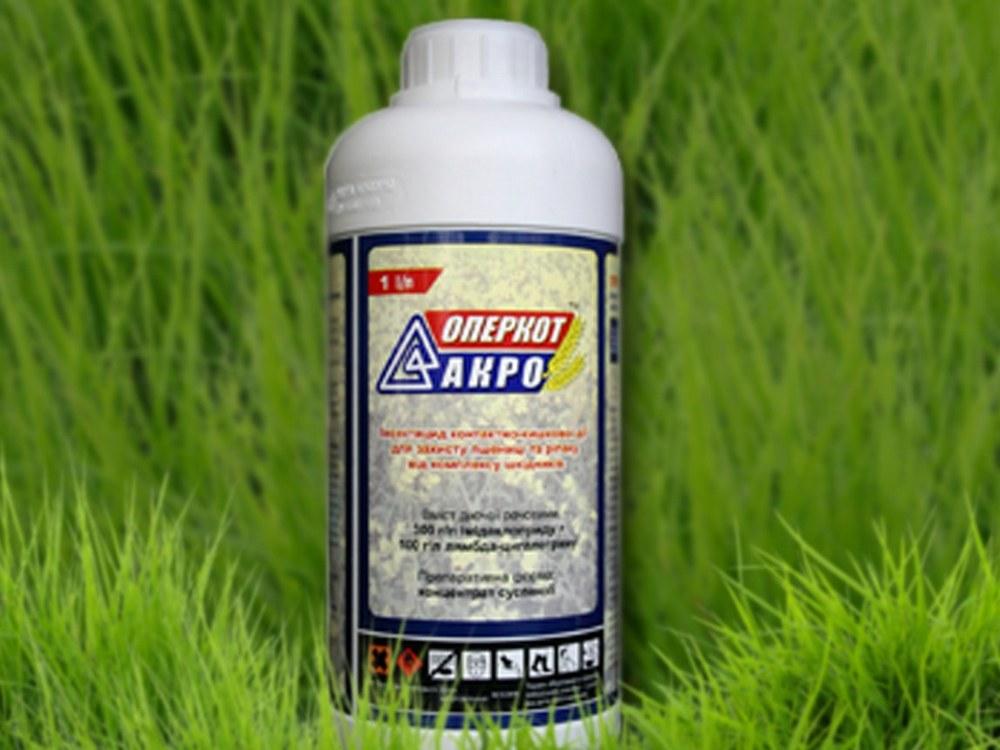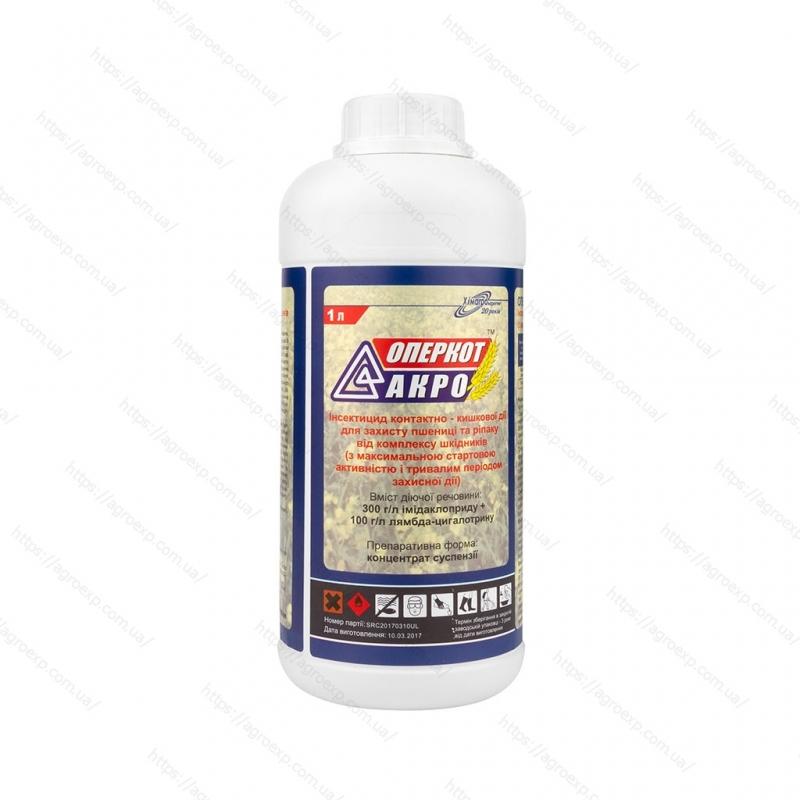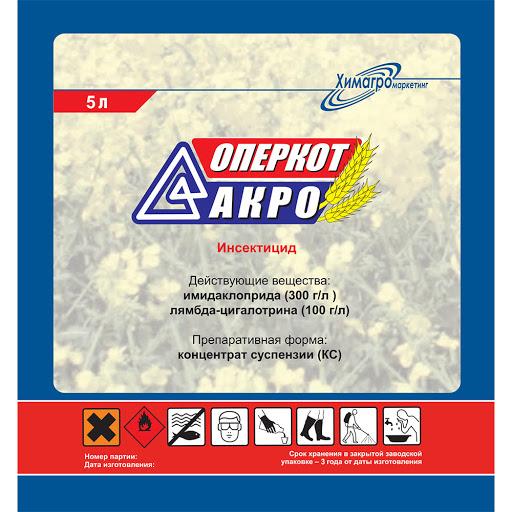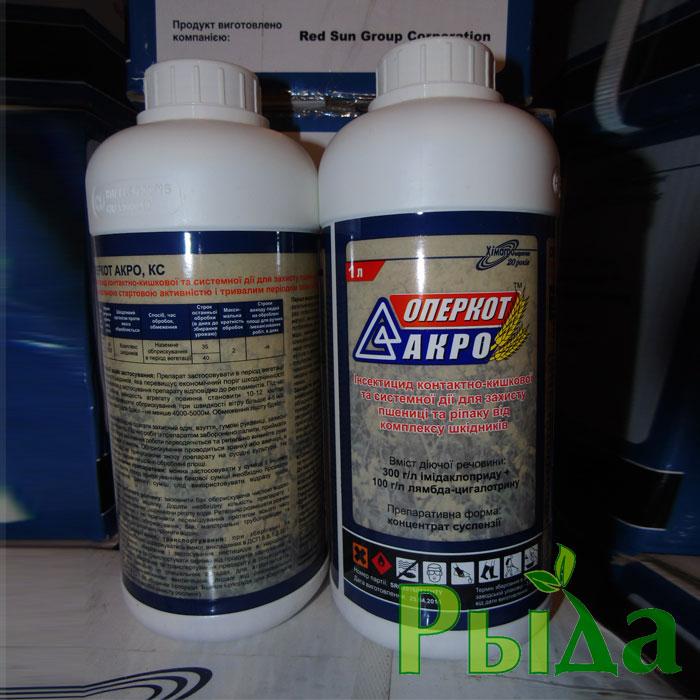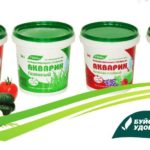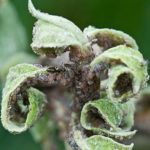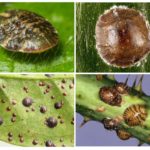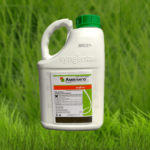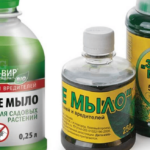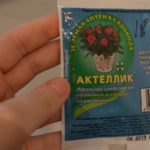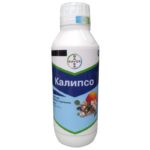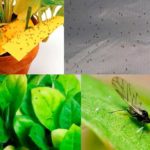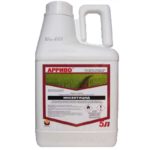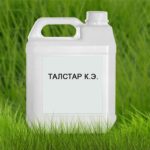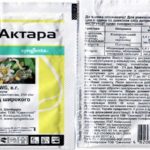Insecticidal treatments of grain, vegetable and hearth crops are necessary to protect them from pests. Let's consider the principle of action, composition and form of release, purpose of "Opercot Acro", consumption rate and dosage. Safety instructions for use and instructions, how compatible the product is with various pesticides, how to store it and what to replace it with in agricultural and personal areas.
Composition and release form of "Opercot Acro"
The insecticide is produced by Himagromarketing LLC in the form of a concentrated suspension.The drug has an intestinal and contact effect on pests. The liquid is bottled in 0.2 l, 1 l bottles and 5 l canisters. “Opercot Acro” contains 2 active ingredients: imidacloprid in the amount of 300 g per 1 liter and lambla-cyhalothrin in the amount of 100 g per 1 liter.
Advantages and disadvantages
Disadvantages: toxic to humans, belongs to drugs with toxicity class 2, so you need to work with this product carefully, following all safety rules.
Spectrum of action
The insecticide, according to the instructions from the manufacturer, is used in agriculture on spring rape and winter wheat against pests from various classes. In addition, it is used on other crops: tomatoes, eggplants, cucumbers, onions, fruits, peas, alfalfa, melons and sorghum.
Principles of the drug's effects
“Opercot Acro” after treatment has a detrimental effect on pests, affecting the nervous system. Insects die from paralysis, the protective effect lasts 2-3 weeks.
Consumption rate and how to apply the insecticide?
According to the instructions, for wheat and rapeseed the application rate is 0.04-0.05 liters per hectare. The fields are sprayed during the growing season of plants, 200-400 liters per hectare are used per hectare, the treatment is one-time, the waiting period is 48 days.
Safety precautions
“Opercot Acro” is a drug that belongs to hazard class 2 for humans, that is, a dangerous drug. It is also highly toxic to bees and fish (class 1), so it is prohibited to use it in gardens when trees are blooming, and near fish farms.
When diluting the product and spraying plants with the solution, you only need to wear thick work clothes with long sleeves, which should cover all exposed parts of the body.
Be sure to wear a respirator to protect your respiratory tract, gloves on your hands and plastic goggles on your eyes. It is not allowed to remove protective devices until work is completed.
If the liquid accidentally gets on your skin, you need to wash it off with water; if it gets into your eyes, be sure to rinse with plenty of water. If it gets into the stomach, you must take immediate action: drink water and activated carbon tablets, then induce vomiting after 10 minutes. If the condition does not improve and the signs of poisoning do not disappear, you should immediately consult a doctor. Treatment of intoxication is symptomatic.
Compatibility
“Opercot Acro” is allowed to be combined with pesticides for various purposes, with FOS and neonicotinoids. Before mixing the drugs in full, it is necessary to carry out a test mixing: mix a small volume of each drug; if there is no undesirable reaction, you can mix the products in the spray tank. To treat plants that have a dense waxy coating on the leaves, it is recommended to use the insecticide in a mixture with “Super Surfactant” or “Super KAP” adhesives.
Storage rules and analogues of the product
The insecticide can be stored for 3 years at a temperature of 5-35 ° C, in a dry room, under moderate lighting. During the shelf life, the drug must be in the original packaging, the lid must be closed. Other pesticides and fertilizers can be stored next to the drug; food, livestock and poultry feed, household products and medicines cannot be placed. Animals and children should not have access to the premises. After the insecticide's shelf life has expired, residues must be disposed of. Use only fresh spray solution, it is advisable to use all of it on the day of treatment. Do not store the solution for longer than 1 day.
Analogs of “Opercot Acro” are considered to be agricultural products containing the substances imidacloprid and lambda-cyhalothrin, which are included in their composition. These are “Akiba”, “Bator”, “Borey Neo”, “Armor Quadra”, “Idikum”, “Imidashans”, “Image”, “Imidor”, “Imikar”, “Gunner Duo”, “Colorado”, “Conrad” ", "Confidor Extra", "Monsoon", "Picus", "Rector", "Surf-Extra", "Street", "Taboo", "Twingo", "Tuareg", "Forcer Ento", "Espero".
On private farms, the insecticide can be replaced with the following products: “Biotlin”, “Zaman”, “Imidor”, “Iskra Golden", "Commander", "Konfidelin", "Korado", "Kortlis", "Pinotsid", "Rembek", "Frontier". As you can see, this insecticide has enough substitutes; from all of them, you can choose the one that is best suited for a particular case.
"Opercot Acro" is used for processing wheat and barley, as well as for treating fruit and vegetable crops against pests. The drug has a low dosage level, is economically consumed, and is effective against many types of pests. The high efficiency of the treatment allows you to use it once a season to completely get rid of insects.

